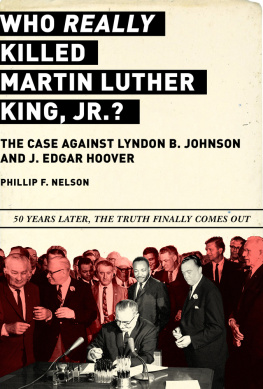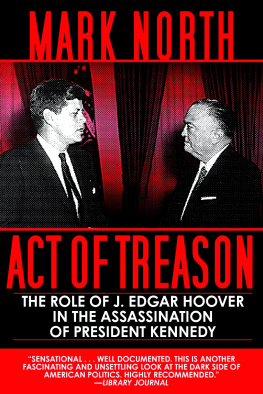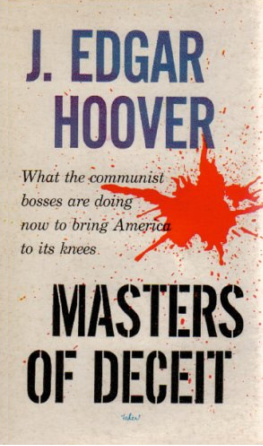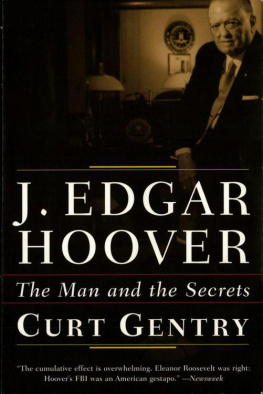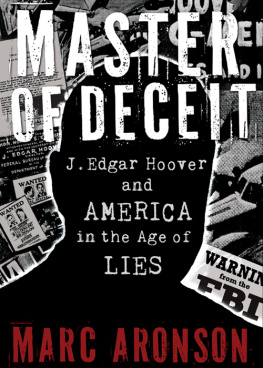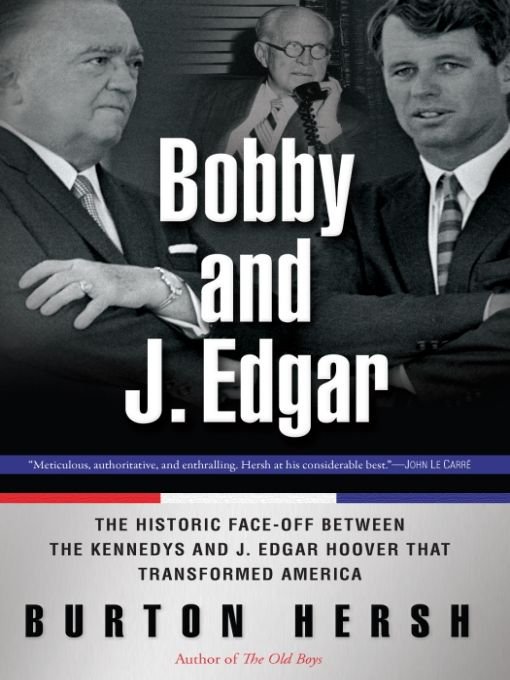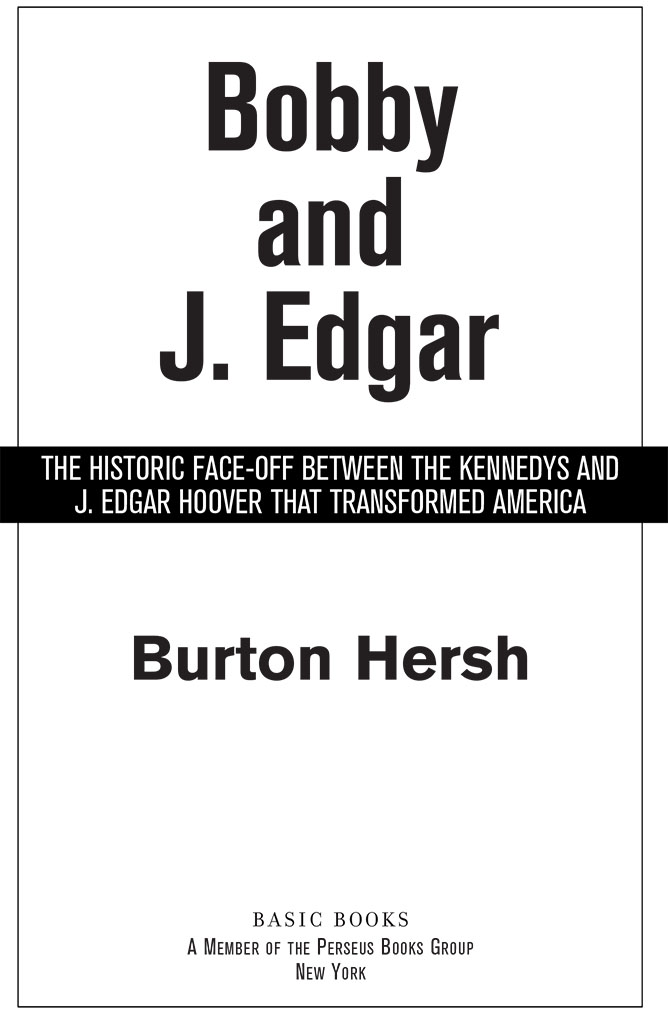Table of Contents
ALSO BY BURTON HERSH
The Nature of the Beast: A Novel
The Shadow President: Ted Kennedy in Opposition
The Old Boys: The American Elite and the Origins of the CIA
The Mellon Family: A Fortune in History
The Education of Edward Kennedy
The Ski People: A Novel
For Ellen,
Early and late
JFK Assassination Update:
Fifty Years Later
It [the Warren Commission Report] was the greatest hoax that has ever been perpetuated.
Richard Nixon to H. R. Haldeman and Chuck Colson, May 1972, BBC News, March 1, 2002, based on freshly released Watergate tapes
Reevaluations by the establishment press have a tendency to swing around hard. It might well be that no two public entities in our recent experience have suffered as radical a second and third look as the Kennedy family and the FBI. The day John Kennedy died he was a triumph of publicity management, a Galahad with never a hair out of place who ushered in the civil rights movement and forestalled a catastrophic nuclear exchange with the Soviets. Then he began to be portrayed as the crippled seducer of every presentable female he could lay hands on and the blundering chief executive whose unwillingness to stand up to his military and intelligence chieftains produced the Bay of Pigs and war in Vietnam.
Lately, with the availability of NSA Action Memorandum No. 263, which nails down JFKs intention to withdraw the 16,000 pilots and helicopter technicians backing up Ngo Dinh Diem in South Vietnam, Kennedy is clearly on record as having been about to renege on what would escalate under Lyndon Johnson into an epic foreign policy blunder. As with the test ban treaty, the president was signaling his intention to pull the country back from open-ended catastrophe. Bobby, still adrenalized by Max Taylors counterinsurgency theories and smoldering from the Bay of Pigs, would remain a lot more forward-leaning, more inclined to entertain the potentialities of risk.
For earlier generations of Americans, J. Edgar Hoover was a mastiff of public safety, the cop who ran down Dillinger and broke up the Nazi fifth column in America and exposed Alger Hiss and the Rosenbergs. Today, Hoover and his FBI are referred to routinely as an American Gestapo. Who has got it right?
In Bobby and J. Edgar I attempted to boil out the reality. Something over four decadesthree books, many magazine piecesspent closely following Edward Kennedy andwhile he lastedRobert Kennedy persuaded me early that the heavily promoted image of the Kennedy mentanned, optimistic, enshrined forever at the tiller of the Victurabore at best a passing resemblance to the conflicted individuals they were. This was a troubled and dysfunctional family. Both Rose and Joe were absentee parents, with Joe out there frenetically fortune building and attending to his long, long string of mistresses and the chilly Rose bouncing back and forth to Europe while her rather hapless nine children struggled to find their adolescent identities in boarding schools. What the parents contributed was the competitive drive, the impulse to play the boys off against one another, if rarely much stability. The outcome was ulcers, frustration, and violent, premature deaths.
The Hoover story is equally double-sided. The book on Hoover these days is that he was a mamas boy, a coward, a blackmailer, and a threat to every president he pretended to serve. All that is true. What Hoovers left-wing detractors tend to leave out is that the Republic might very well not have survived if Hoover and his Special Agents had not stepped in and broken up every significant threat from a pending coup against FDR by the fascist-oriented Liberty League in 1936 to the Ku Klux Klan during the Johnson years. Hoover didnt like Communists; he didnt like Martin Luther King, Jr. He fought the elements he despised with every means possible, fair or foul. In a review of this book when it first came out in 2007, David Corn lamented in The New York Times Book Review that ultimately I went soft on Hoover. Most of Corns comments up until that point had been uninformed or well off the mark. Here, possibly, he had something.
In many respects the most revealing moment of John Kennedys presidency occurred as he was leaving it, his murder in Dealey Plaza. There are, supposedly, something over a thousand books out there about the JFK assassination. They run the gamut from sob-sister analyses of Marina Oswalds feelings when her husband was picked up in the Texas Theater to an expos asserting that Lyndon Johnsons lawyer put the whole thing together. There are detailed ballistic treatments that purport to prove that there were shooterstwo? three? four?in gun positions out there in Dallas that terrible day, firing how many bullets? There have been a couple of extended whitewashes of the Warren Commission findings, one savaging its predecessor and committed from the outset to ignoring the relevant evidence anddespite their eager reception by the establishment pressdiscredited virtually upon arrival.
What Bobby and J. Edgar was intended to do, apart from opening up the history of these two fascinating antagonists, was to demonstrate fully, and in dramatic detail, how Joe Kennedys careerlong involvement with the barons of organized crime, and Hoovers unique talent for cooking the facts to protect his Bureau, and Robert Kennedys determination to Get Castro while bringing to heel the disgruntled CIAhow all this converged in Dallas. This was an epic national tragedy, and to understand it you have to know something about the players on the ground. I think my Chapter 19 still stands.
What I was not able to do by 2007, except inferentially, was shade in the larger forces, the power brokers and paymasters offstage who allegedly underwrote and then covered up this convulsion of our history. Most frequently under suspicion these days is the Central Intelligence Agency, where operatives were known all along to resent the Kennedy brothers and emerged embittered from what they regarded as a sellout during the Bay of Pigs.
By now the involvement of a number of CIA functionaries in setting the scene in Dallas is pretty much beyond dispute. CIA pilots are on record as having flown in important coordinating figures, from the Chicago Outfits strategizer Johnny Rosselli on down, ostensibly to provide backup protection for the president. Rosselli dealt with sensitive chores for Joseph P. Kennedy most of his adult life. Suave, broadly connected, murderous when the situation required, Rosselli had also traded favorsespecially around Central Americawith Agency operations personnel for years.
Unearthed in his Illinois penitentiary, that accomplished button man James Files has admitted to a team of ex-FBI investigators that it was he himself behind the fence in the Grassy Knoll who delivered the hollow-point bullet that struck the president in the temple and blew his brains out. A soldier all along in the Chicago mob, Files had a history as a mercenary for the Agency and fought in Ted Shackleys unpublicized jungle war in Laos as well as well as helping out with Operation Mongoose against Cuba.
For the intelligence historian, the question ultimately gets to be how high accountability goes. Of recent years that indefatigable critic of the Warren Commissions findings, Mark Lane, has dug up or forced into testimony new and very important evidence. A seasoned, bustling courtroom attorney, not to be intimidated, Lane had already gotten himself elected to the New York Legislature as a Reform-Movement Democrat and been arrested as a Freedom Rider before Kennedy was shot. Barely a month after the assassination, Lane managed to place an article in the offbeat


